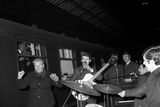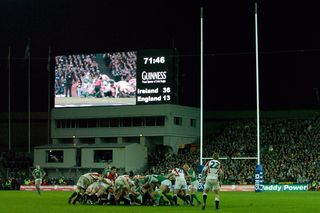Classic talk: Forgotten father of the pianoforte
Westminister honour: Italian composer Muzio Clementi
There's a tombstone in Westminster Abbey that includes the words "his fame as a musician and composer acknowledged throughout Europe procured him the honour of a public interment in this cloister". The question is, who is he? Henry Purcell? Or Handel, maybe? Perhaps it marks the spot where the ashes of Ralph Vaughan Williams are buried.
It's none of those eminent men of music, who've also been honoured at Westminster. The stone marks the final resting place of Muzio Clementi.
His star may have dimmed somewhat. But, as the inscription confirms, he had an enormous influence during a long life, which straddled the late 18th and early 19th centuries.
Clementi was born in Rome on January 23, 1752, and showed an aptitude for music from an early age. Still only 15, he moved to England after being spotted by a wealthy British landowner doing the grand tour of Europe, who became Clementi's patron.
This man, Peter Beckford, soon to become an MP, set Clementi up with one of the new pianos that were taking over from the harpsichord. Clementi made it his own. By the time he'd reached his 20s, he was the talk of London.
His burgeoning reputation led to a grand tour of his own. At Christmas in 1781, he was in Vienna.
The Emperor Joseph II had this bright idea to headline an evening of festive musical entertainment. He'd hire Mozart, and he and Clementi would face off in a duel on the grand piano.
They played in turn, then finished up extemporising together on two instruments. The contest was declared a tie, though Clementi was much more complimentary about Mozart's playing than the Austrian was about his.
Clementi might outdo him in terms of technical expertise, but Mozart detected no emotion. Clementi, in his view, was no more than a machine!
Back in London - the world's most influential city of the time - Clementi's music continued to please audiences. He was also sharing his expertise.
One of his pupils was John Field from Dublin, who would join Clementi on an extensive promotional tour of Europe. Clementi was now in the business of selling pianos and Field was his demonstrator.
They spent around eight years on the road, and only split up when Field decided he wanted to stay on in Russia and Clementi headed for home on his own.
Though Haydn and Beethoven had taken over, Clementi's mark had been made. His volume of studies and exercises - Gradus ad Parnassum - had become the standard reference work.
His playing had been outstanding, his compositions enthusiastically received. And when he died in 1832, it was the directors of the Philharmonic Society - London's first orchestra, which he had directed - who made the request that he should be buried in Westminster Abbey.
His tombstone also describes him as "The Father of the Pianoforte". His pupil and protégé, John Field, the father of the nocturne, died in Moscow some five years later, on January 23, 1837 - his old boss's birthday.
George Hamilton presents The Hamilton Scores on RTÉ lyric fm from 10am each Saturday and Sunday.
Join the Irish Independent WhatsApp channel
Stay up to date with all the latest news














